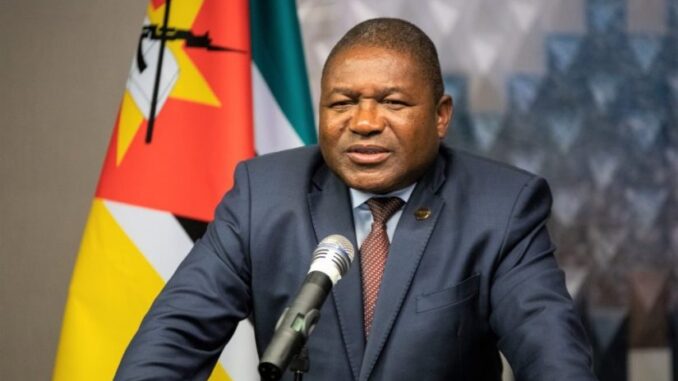
The government of Mozambique has sanctioned a strategy to diminish the country’s reliance on fossil fuels, estimating a cost of US$80 billion (R1.5 trillion) for implementation by 2050. This move is designed to attract financial support for economic development. The initial measures outlined in the Energy Transition Strategy, endorsed by the Council of Ministers on November 21, involve the incorporation of 2 gigawatts of hydropower capacity by 2030 and the expansion of the transmission grid to accommodate additional renewable energy sources.
The comprehensive program is scheduled to be unveiled by President Filipe Nyusi on December 2 during an event at the Cop28 international climate summit in Dubai.
In a statement, the government noted that Mozambique possesses significant potential to become a global leader in climate-aligned development, emphasizing that the ambitious Energy Transition Strategy provides a clear roadmap for leveraging these assets to achieve sustainable nationwide growth and emissions reduction.
Mozambique joins other developing nations, including South Africa, Indonesia, Vietnam, and Senegal, in seeking international funding for transitioning away from coal and other fossil fuels. Talks regarding funding have reportedly taken place with Belgium, Germany, the UK, and the United Arab Emirates, with an investment plan anticipated to be announced at the Cop meeting.
Despite being one of the world’s poorest countries, Mozambique boasts abundant hydropower, wind, solar, and natural gas resources, along with essential materials like lithium and graphite for green technologies.
The government intends to hold more auctions to encourage privately owned solar and wind power plants, establish “green industrial parks” for mineral processing, increase the use of ethanol and biodiesel in fuel, promote electric and compressed natural gas vehicles, achieve universal access to electricity by 2030, and advocate for more efficient cooking methods to reduce reliance on wood and charcoal.
